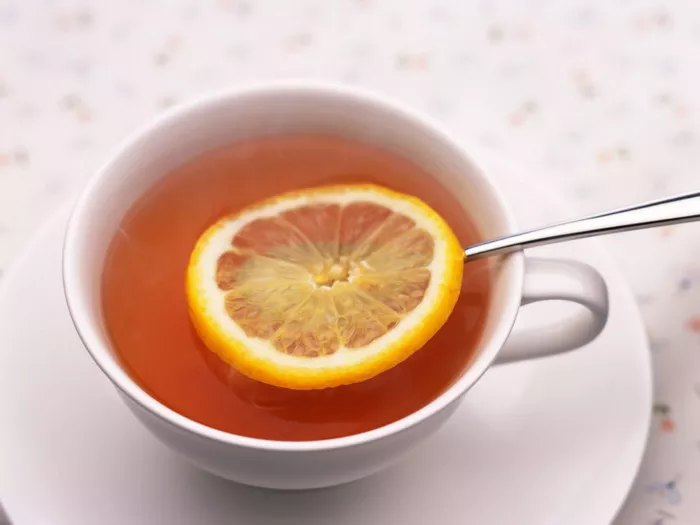Oolong tea, with its unique flavor profile and rich history, stands as a distinctive member in the vast world of teas. Positioned between green and black tea in terms of oxidation levels, oolong tea offers a plethora of benefits and effects that contribute to both physical and mental well-being. In this article, we will delve into seven notable advantages of incorporating oolong tea into your daily routine.
7 Benefits and Effects of Oolong Tea
1. Weight Management and Metabolism Boost
One of the most celebrated benefits of oolong tea is its potential to aid weight management. The polyphenols present in oolong tea, particularly catechins and theaflavins, have been linked to increased metabolism and fat oxidation. These compounds may enhance the body’s ability to burn calories, making oolong tea a valuable addition to a balanced diet and regular exercise routine.
Several studies have suggested that oolong tea may contribute to weight loss by promoting the breakdown of fat cells and improving the body’s metabolism. Regular consumption of oolong tea may be a helpful complement to a healthy lifestyle for those looking to manage their weight effectively.
2. Antioxidant Richness for Cellular Health
Oolong tea boasts a rich antioxidant profile, thanks to its polyphenolic content. Antioxidants play a crucial role in neutralizing free radicals, and unstable molecules that can damage cells and contribute to aging and various diseases.
The unique combination of catechins, theaflavins, and other antioxidants in oolong tea may help protect cells from oxidative stress. This, in turn, supports overall cellular health and may contribute to a lower risk of chronic diseases, including cardiovascular conditions and certain cancers.
3. Heart Health and Cholesterol Regulation
Research suggests that regular consumption of oolong tea may positively impact cardiovascular health. The theaflavins found in oolong tea have been associated with improvements in cholesterol levels by reducing LDL cholesterol, often referred to as the “bad” cholesterol.
Moreover, oolong tea may support heart health by promoting blood vessel health and improving blood flow. The combination of antioxidants and other bioactive compounds in oolong tea may contribute to maintaining healthy blood pressure levels and reducing the risk of heart-related issues.
4. Mental Alertness and Cognitive Function
Beyond its physical benefits, oolong tea has been linked to improvements in mental alertness and cognitive function. The moderate caffeine content in oolong tea, along with the amino acid L-theanine, creates a synergistic effect that promotes alertness without the jittery side effects often associated with high-caffeine beverages.
The L-theanine in oolong tea has calming properties that can help reduce stress and anxiety while enhancing focus and concentration. Regular consumption of oolong tea may provide a natural and gentle cognitive boost, making it an excellent choice for those seeking mental clarity and improved productivity.
5. Blood Sugar Regulation
Oolong tea may play a role in regulating blood sugar levels, making it a potentially valuable beverage for individuals managing diabetes or those at risk of developing insulin resistance. Some studies suggest that oolong tea may enhance insulin sensitivity, helping the body better utilize glucose and maintain stable blood sugar levels.
The polyphenols in oolong tea may also inhibit the absorption of carbohydrates in the digestive tract, further contributing to better blood sugar control. While more research is needed, these preliminary findings highlight oolong tea’s potential as a supportive element in diabetes management.
6. Dental Health and Oral Hygiene
The polyphenols present in oolong tea exhibit antimicrobial properties that may contribute to improved oral health. These compounds have been associated with inhibiting the growth of bacteria in the mouth, reducing the risk of dental issues such as cavities and gum disease.
Additionally, the fluoride content in oolong tea may promote dental strength and help prevent tooth decay. Including oolong tea in your beverage choices can thus contribute to a comprehensive oral care routine, supporting a healthy smile.
7. Skin Health and Radiance
The antioxidant-rich nature of oolong tea extends its benefits to skin health. By neutralizing free radicals that contribute to premature aging and skin damage, oolong tea may help maintain a youthful complexion.
Oolong tea’s potential to support skin health is further enhanced by its polyphenols, which may aid in reducing inflammation and promoting overall skin radiance. Regular consumption of oolong tea, combined with a well-rounded skincare routine, can be a holistic approach to achieving and maintaining healthy and vibrant skin.
Conclusion
Oolong tea, with its nuanced flavor and remarkable health benefits, stands out as a beverage that offers both pleasure and well-being. From aiding weight management and boosting metabolism to promoting heart health, cognitive function, and skin radiance, the advantages of oolong tea are diverse and compelling.























